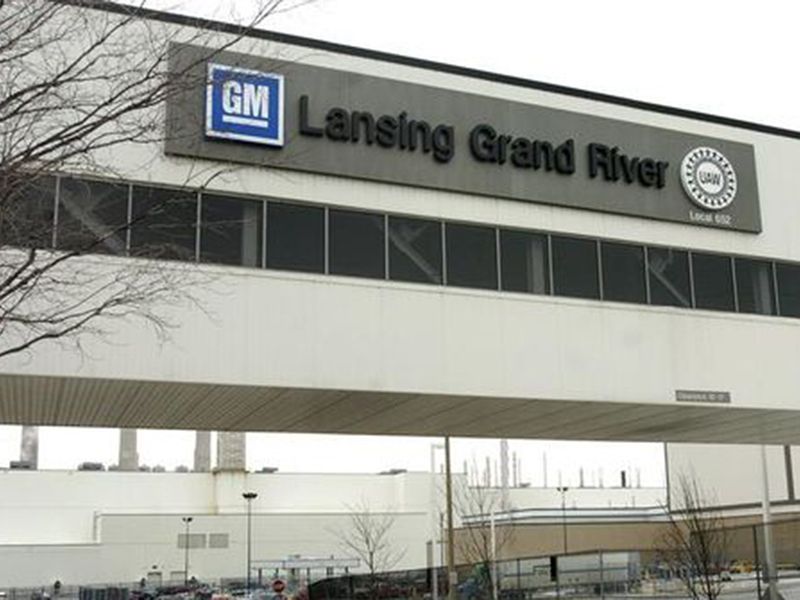
General Motors will idle production at a plant in Lansing, Mich., as a result of the ongoing global semiconductor shortage.
Lansing Grand River Assembly will be down from Monday until at least the end of the month, a GM spokesman confirmed. The plant employs 1,400 workers and produces the Chevrolet Camaro and Cadillac CT4 and CT5.
“We continue to work closely with our supply base to find solutions for our suppliers’ semiconductor requirements and to mitigate impact on GM,” spokesman Daniel Flores said in a statement.
The intent is to make up as much production lost at these plants as possible, he added.
For months, the semiconductor supply shortage has forced automakers to make production adjustments, causing headaches across the industry. The Detroit News reported earlier Thursday on GM’s latest production halt.
This month, GM announced downtime at several of its plants in North America.
Assembly plants in Kansas City, Kan., and Ingersoll, Ontario — which have been down since Feb. 8 — will continue downtime on all production shifts through at least mid-April.
The Kansas City plant produces the Chevrolet Malibu and Cadillac XT4; the plant in Ingersoll produces the Chevrolet Equinox.
The company’s Gravatai plant in Brazil is set to take downtime in April and May, which could affect production of the Chevrolet Onix.
But San Luis Potosi Assembly in Mexico will restart production April 5. The plant, which builds the Equinox, Chevrolet Trax and GMC Terrain, has also been down since the week of Feb. 8.
The automaker said it has not taken downtime or cut shifts at any of its full-size truck plants.
U.S. Rep. Elissa Slotkin, a Michigan Democrat whose district includes Lansing, responded to the plant’s idling.
Slotkin said she spoke to local UAW leaders Thursday and said they told her they are working to support plant workers now facing reduced pay.
“I’m thinking of the workers who are getting this news today, during an already challenging time for Michigan families,” Slotkin said in a statement. “It’s particularly painful to see supply chain disruptions similar to those that rocked our state early in the pandemic are now upending our autoworkers’ jobs and economic security.”
The UAW’s contracts provide employees with “unemployment plus supplemental pay” that usually averages out to 75 to 80 percent of regular wages, said union spokesman Brian Rothenberg.

